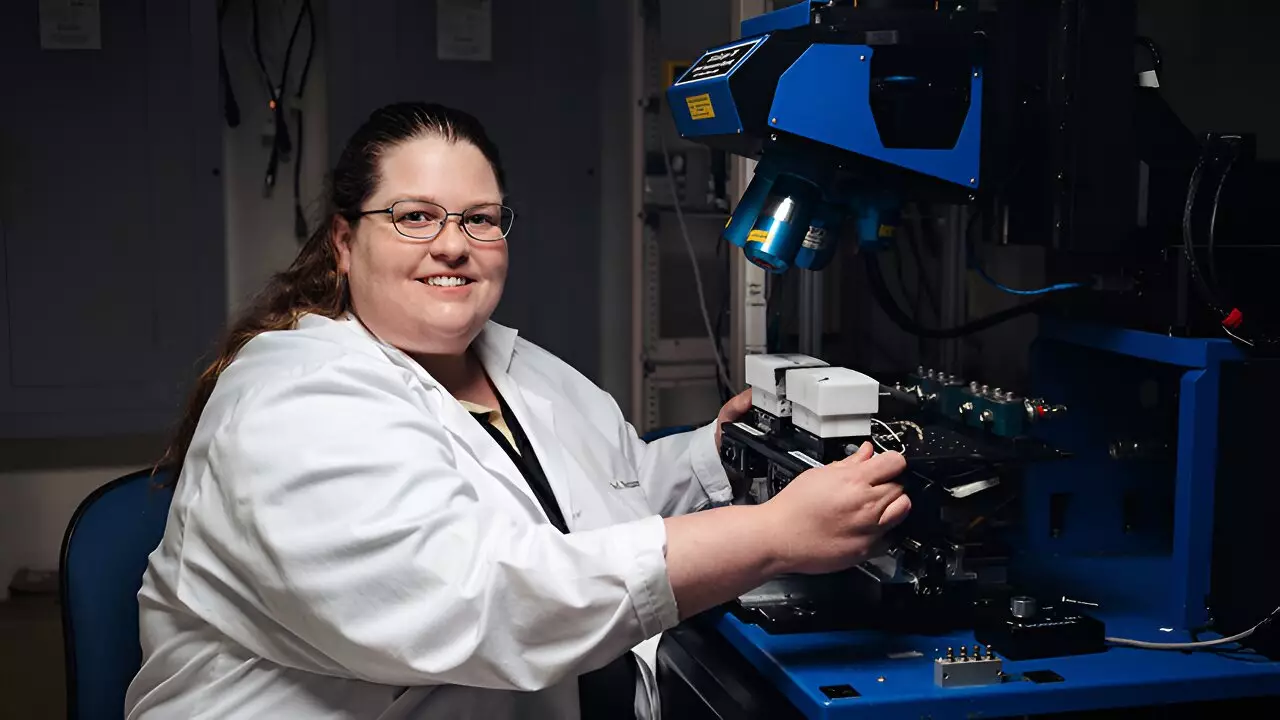In today’s fast-paced technological landscape, the ability to manage heat effectively in electronics has become paramount. From smartphones to electric vehicles, every device generates heat as a byproduct of operation. This heat can lead to degradation in performance and shorten the lifespan of electronic components, necessitating innovative thermal management techniques. Traditional cooling methods, such as fans in desktop computers, are often insufficient for the compact and powerful devices we use today. Such advancements in electronics require a rethinking of how we approach thermal management on a broad scale.
Purdue University’s Amy Marconnet, a leading authority in mechanical engineering, is at the forefront of this research. Her work encompasses a myriad of device types, with a focus on establishing effective cooling mechanisms that can handle the extreme demands placed upon modern electronics. “Electronics operate optimally within a specific temperature range,” Marconnet emphasizes. She explores diverse cooling techniques, including the application of improved thermal transfer materials and innovative designs at the nanoscale. By enhancing the thermal management systems, devices can run more efficiently, providing users with better performance.
One promising avenue being researched involves phase change materials (PCMs). These substances possess unique characteristics that allow them to absorb and release heat during phase transitions (such as melting and solidifying), making them ideal for thermal management. Marconnet’s investigation into the application of PCMs within wearable technology suggests potential benefits, such as maintaining comfort for users by regulating temperatures. “When using devices like virtual reality goggles, the PCMs can absorb heat produced during use and solidify when not in operation, readying the device for high-intensity usage later,” she explained. This cyclical heat management could revolutionize how electronic devices maintain thermal stability.
In an effort to maintain lightweight and cost-effective designs, Marconnet is examining metallic alloys as potential phase change materials for chips. This approach, championed by graduate student Meghavin Bhatasana, aims to provide efficient cooling without sacrificing system performance. The focus on finding the right materials could lead to significant advances in how heat is transferred away from critical components, contributing to overall device longevity and reliability.
Moreover, Marconnet’s previous work with thermal greases, a common substance used to enhance thermal contact in electronics, underscores the urgency of innovating in this space. As thermal greases can degrade over time, leading to performance drops, the development of more stable materials is essential. “We aim to expedite the testing process for identifying effective thermal management solutions without subjecting them to years of operational evaluation,” Marconnet stated.
Battery technology also plays a central role in heat generation and management. As the demand for rapid charging surges, the heat produced during charging becomes a significant concern. Marconnet likens the situation to an incandescent light bulb—while it emits light (useful power), it simultaneously generates heat from its operation. The challenge lies in harnessing battery power efficiently while minimizing excess heat, which is often a byproduct of electrochemical reactions during charging.
Alongside her collaborator, Professor Xiulin Ruan, Marconnet is also investigating the design of compressible foams that can effectively dissipate heat while insulating against colder environments. This endeavor reflects the broader push in the research community toward creating solutions that not only equip devices for peak performance but also enhance their longevity.
As the push for thermal management solutions continues, Marconnet’s upcoming publications on phase change materials reflect ongoing advancements in this essential field. With continual innovations and promising research aimed at improving thermal efficiency, the future of electronic device operation looks increasingly bright. By implementing smarter materials and cutting-edge thermal strategies, researchers have the potential to significantly impact the efficacy and lifespan of the technologies we rely on daily. The evolution of electronics cooling is not just a technical necessity; it is a springboard for the next generation of technological development.


Leave a Reply